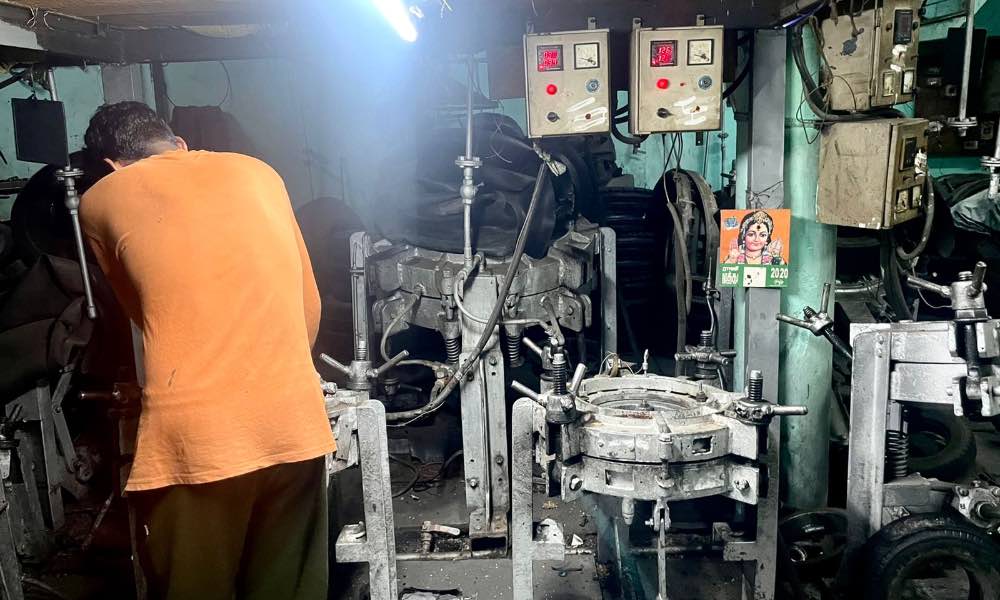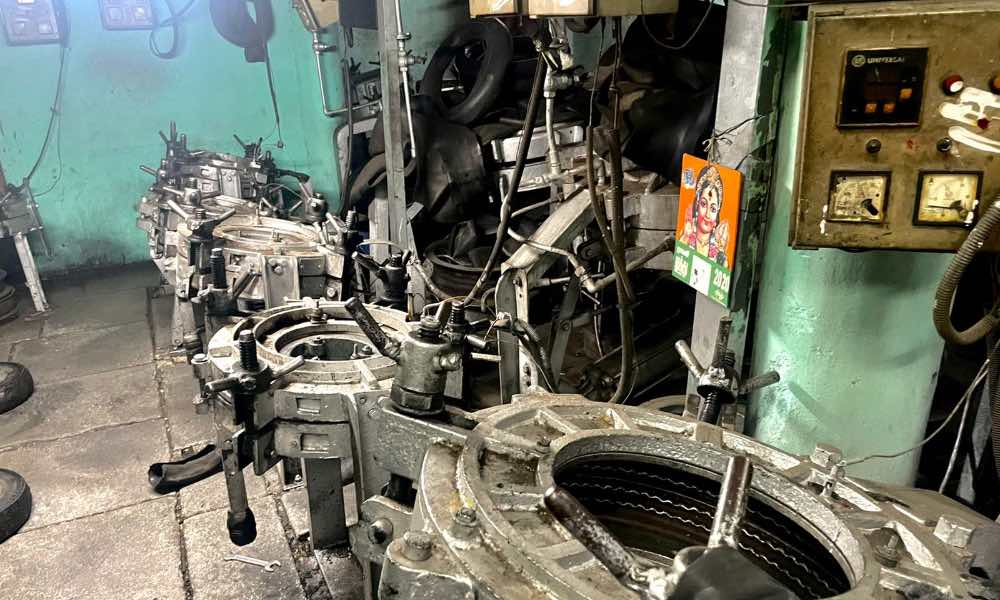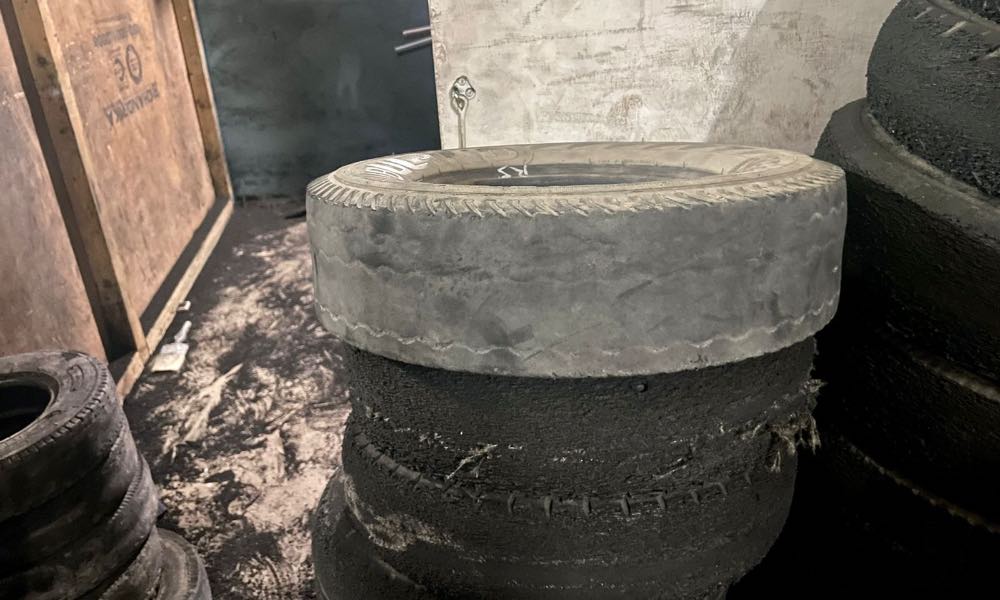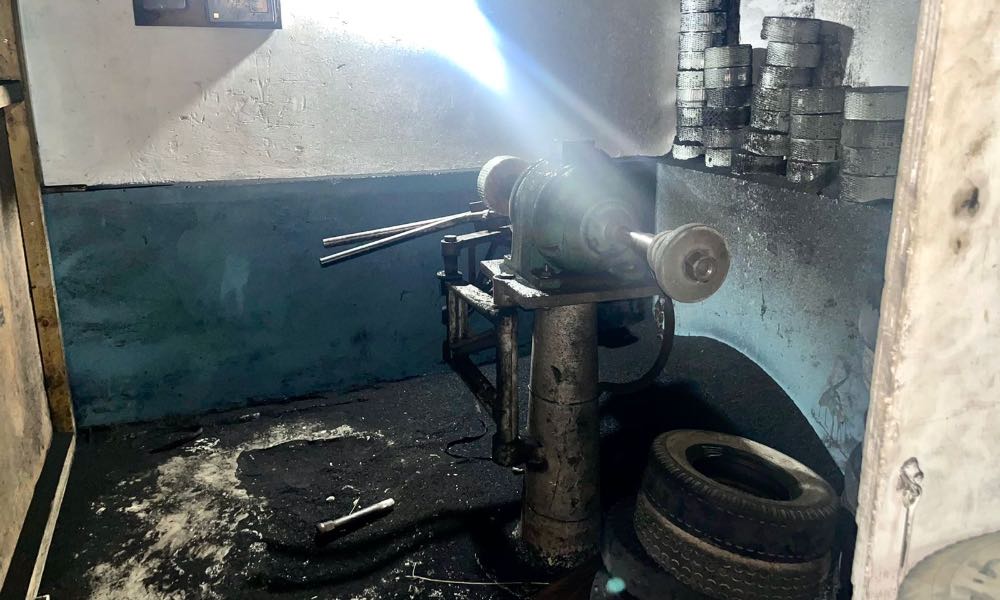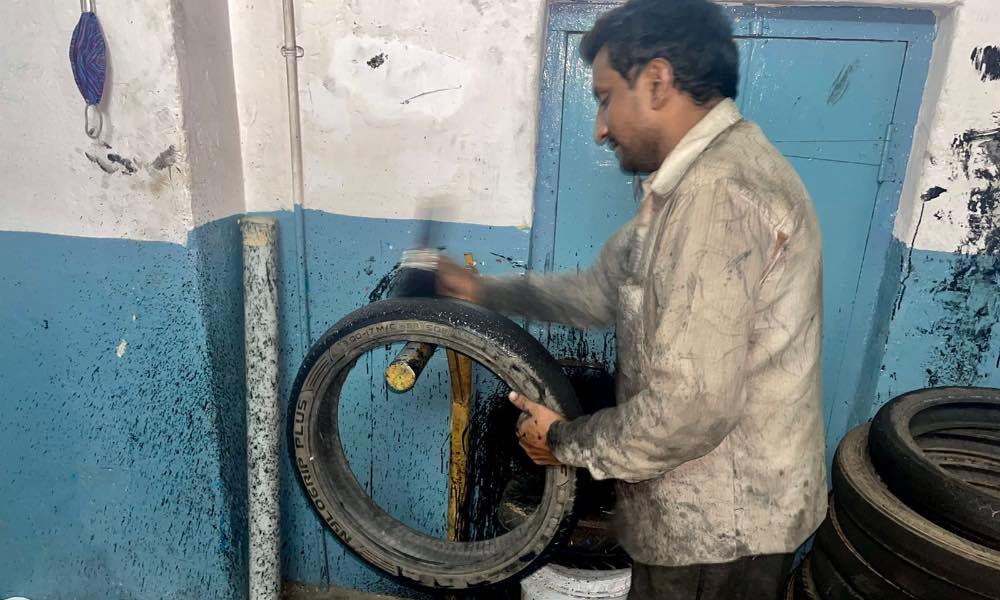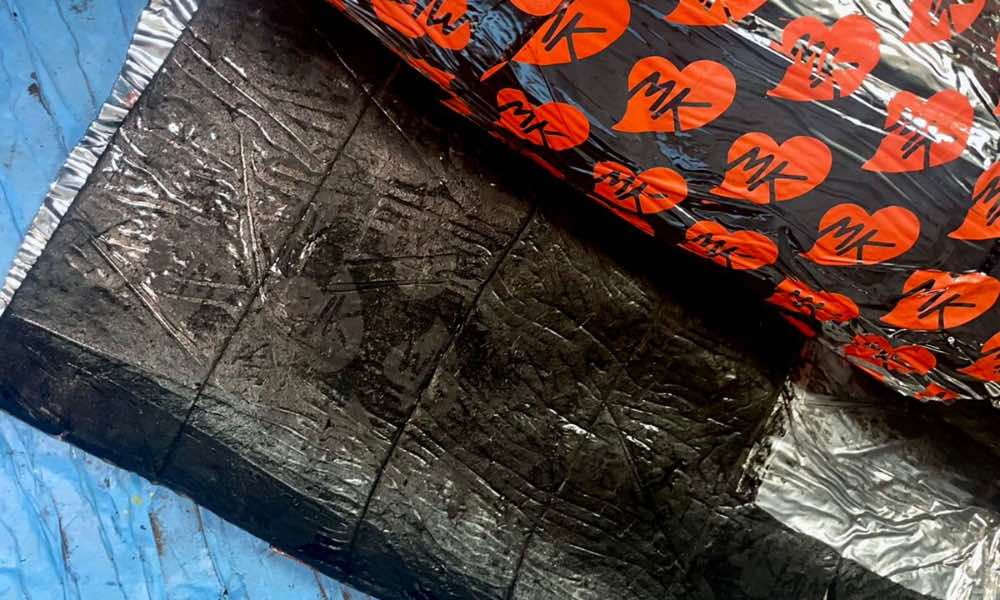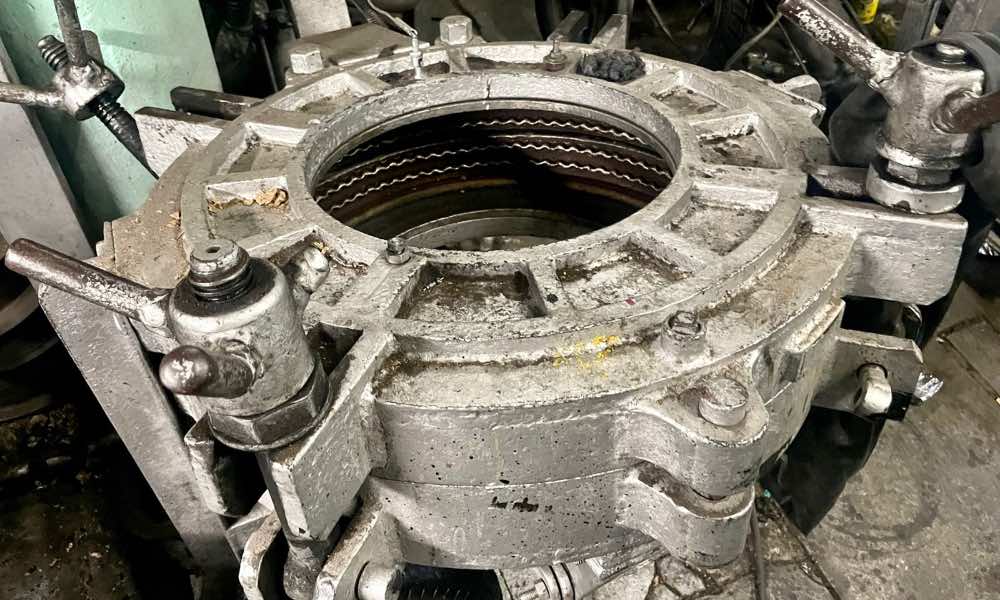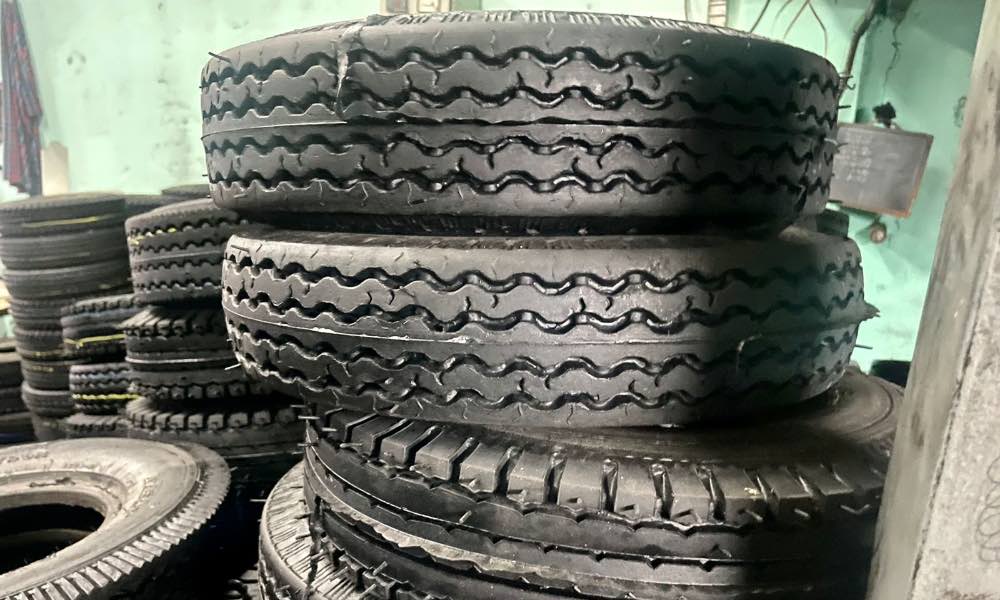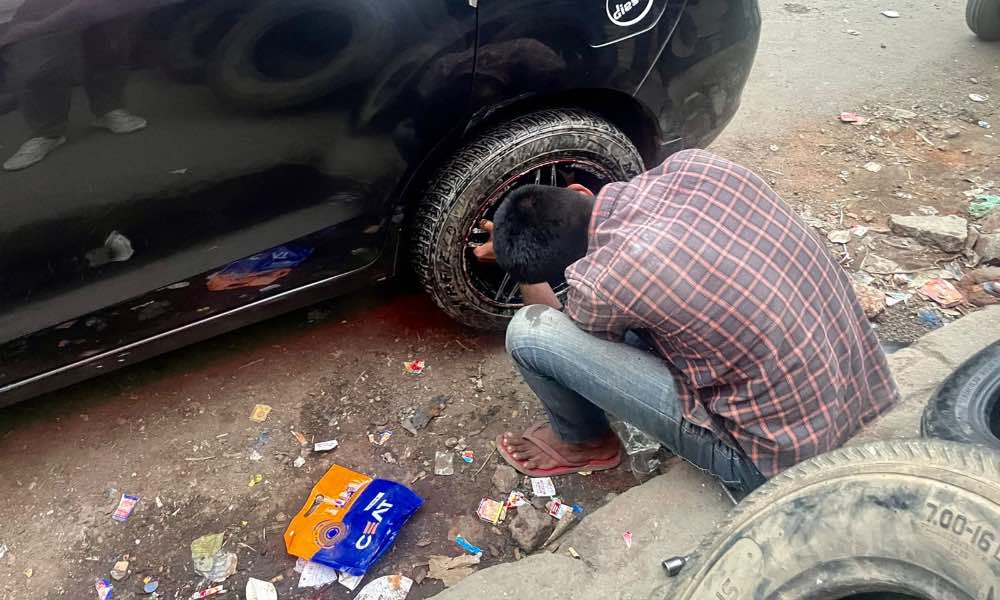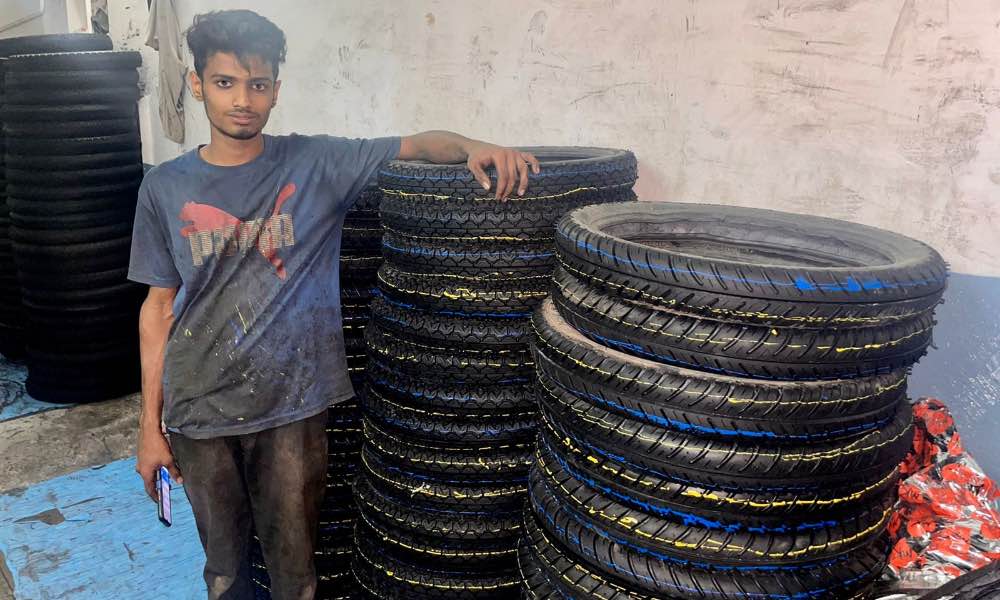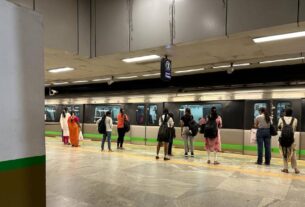The unorganised tyre retreading sector in Kalasipalya mostly finds the use of ‘hot method’ in retreading.
The unseasonal rains have added to the misery of tyre re-treading industry in Kalasipalya which was already struggling due to the pandemic. The number of re-treaded tyres sold daily have reduced by 60 percent.
Yaseen 18, employee at AK Tyres, has been working in the industry for past three years. “Out of the 50 units, eight [were forced to] shut down, post lockdown.” A single mould used in re-treading costs about one lakh rupees. People who shut shop sold the mould for about Rs. 30,000 to pay off their loans, he said.
They used to sell upto 200 tyres a day but now the number has come down to about 80 tyres, he added.
Shaid, owner of Star Retreading, said that the unexpected rain has led to fall in the number of tyres being sold, as people avoid using their private vehicles. “Earlier we used to sell 20-25 tyres but now there are days when we don’t sell any tyres at all. However, we are waiting for summer season during which we would see a rise in the number of tyres being sold,” he said.
Syed, owner of MBS Tyre said that For the three months that his shop and factory were closed during the lockdown he still had to pay rent amounting to Rs. 2,00,000. “The owners of the properties said that they can’t help us with anything as they were in a similar financial situation. There was an added cost of Rs. 30,000 of the electricity bill as the machines required a minimum charge at all times,” he added.
Syed had to take loans due to such financial issues, which he is still paying off. Before the pandemic he used to sell 400 to 500 tyres a day. “Kalasipalya has about 50 tyre retreading factories and 180-200 tyre selling shops. All the tyres are supplied from the factories nearby. During the pandemic we are selling only 100 tyres a day,” he added.
Sayed, a tyre trader at Indian Tyre Retreading used to have a tyre retreading factory. He said that selling tyres was a profitable business. “Earlier we used to sell 70 to 80 tyres in a month, but now the number is down to 30 tyres,” he said.
Small mechanics or street side puncture shop owners used to purchase tyres from them but after the pandemic they stopped purchasing. Sayed wondered how they continued their business.
Rahul, 25 said that he would have never gone for a retreaded tyre but due to dearth of cash, he had no other option. “An original tyre costs Rs. 4,500 while you can get retreaded tyres for as low as Rs. 1000 a pair. The tyres I had earlier were branded and they gave me a good run of about 1,23,000 kilometers. Retreaded tyres have to be changed within months of use.” He said that he would buy original tyres, as soon as he had enough money to buy.
Deepak, 27 had similar views. He had two cars one of which is a refurbished car. He said “I had brought retreaded tyres for it as I plan to sell it soon. The tyres look as good as new tyres, but you have to replace them within a few months as they are not that durable.” He added that he would never go for retreaded tyres for a newly bought car.
The tyre re-treading industry is comparatively a new and blooming industry. The market share for the organised and the unorganised sector is about 50 percent each. Many new companies are coming forward and investing in tyre re-treading.
Shaid is afraid of the fact that new organized companies entering the field might snatch the business away from them.
Syed on the other hand, was positive that they would survive. “The local customers would still purchase from us due to the relationship we have built with them,” he said.
Even the branded tyres face malfunction. “To get them treated, the customers have to follow a long process. They have to consult an agency and then the agency contacts the company. All this is a lengthy process. When customers come to us with any issue, and if there is a fault at our end, we exchange the tyres in no time,” he added.
The organised sector uses mainly cold method for retreading while the unorganised sector uses the hot method. In Kalasipalya, hot method is largely used for re-treading.
In the hot method, tyre is vulcanized at about 150 degree Celsius. And the workers use their bare hands to lift off the tyres from the mould to the ground. “Our hands have grown numb towards the heat,” Yaseen said.
The customer who are aware of both the methods, go for the cold treatment as those tyres provide better mileage. But Sayed explained that cold method is costlier, because the raw material is more expensive.
Shaid said that the cost of setting up a retreading plant which uses cold method can cost about Rs.15, 00,000 while a plant which uses the hot method can be set up with as low as Rs. 1,50,000.
All these factors give an upper edge to the organized companies in the tyre re-treading business.
Shaid also lamented that the government nowadays is pushing for treatment plants that use cold method for re-treading, but not providing any aid for the same.


